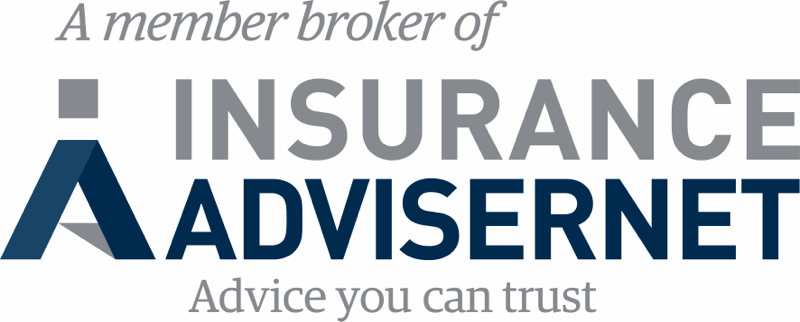Why You Should Review Your Insurance Regularly – Save Money and Ensure Adequate Protection
Regularly Reviewing Your Insurance Cover is an Important Task
Recurring costs like insurance can feel like a ‘set and forget’ aspect of life and running your business, but insurance is a big ticket item and you should make sure it is actually working for you.
Making sure you are covered in an effective way doesn’t have to mean the highest price tag. By running through a few things with your insurance agent you can minimize the premium while staying covered for what you need.
There’s no right or wrong time to do a health check on your policy
Regardless of if you’ve just paid for a year, have the invoice waiting to be addressed, or paying a monthly premium there is always good sense in having a through look over your policy and what’s covered.
Check on your premiums
Premium funding is the mechanism that enables businesses to pay insurance premiums in instalments. There are pros and cons to this arrangement, and each should be considered before signing on. Premium funding finance is not an uncommon offering from brokers and though it can come with higher finance company interest rates it can help you to spread out cash flow obligations.
However, there is an increasing trend for insurance brokers to accept extended invoice payment credit terms without getting finance companies - and their associated interest charges – involved.
Check on your excess
By increasing your voluntary excess on top of the standard excess can help to lower the premiums on many types of insurance including home and contents. Adding even a $1,000 voluntary excess can make a big difference in your premium.
Check your valuations
If you’ve had your insurance policy for any length of time you should check the valuation placed on cars and other valuables. The listed value should reflect the current market value.
The current market value is the limit of what you can expect to recover in case of a claim, so there is no point paying premiums on items listed higher than it.
Check on covered drivers
The most important reason to check your covered drivers is to make sure everyone driving the vehicle is covered, but it also pays to make sure you’re not paying extra for a person who no longer drives the vehicle.
Check for deals
Many insurers have offers, package discounts, and multiple policy bonusses so make sure you aren’t paying full price for two separate policies when you could be saving on premiums by associating them with each other.
What do businesses need to do?
Businesses should also run their cover through regular reviews to make sure they’re still adequately covered. You should consider the following if your business operations and risk has materially changed.
Public liability
Because employee numbers and annual turnover inform premium costs, a significant decrease in these factors could help lower premiums. This tactic is most effective with higher premiums – those in excess of $2,000.
Business Interruption
Business interruption premiums are based on projections of future trading so if parts of your income are significantly reduced then your premium should be adjusted to reflect this.
Commercial Fleet
If you are sending fewer vehicles out on to the roads, their risk of being involved in claimable incidents is reduced. If your fleet is reducing or you will not be using them on the road for a longer period of time – months for example – then this reduction should be reflected in your premium.
Annual Travel
With the pandemic travel restrictions still affecting the world, including air travel on your policy may be superfluous for the immediate future. Unless you have existing travel that’s booked and paid for and that you have good reason to believe will actually be able to proceed you might consider removing the cover and saving on the premiums.
Material Damage
Voluntary excesses and reduced stock held on hand can both reduce material damage premiums. This tactic is most effective for very high excesses – greater than $10,000.
Under insurance comes with significant and genuine risks
There are significant pitfalls and risks that come with every type of under insurance. Whether this is from unintentional oversight that leaves you unprotected or an intentional lowering of protections that back fires the result is the same – you’re left holding a much larger bill than you’ve saved in premiums.
Unintentionally Under-Insured
This comes when people don’t realize that they are under insured. Commonly this can include forgetting to add a regular driver to their vehicle cover or not realizing that their policy doesn’t cover specific incidents.
Intentional Lowering
This could refer to situations like lowering fire and theft cover on a holiday home you cannot currently get to, without realizing that those threats are actually elevated right now.
Underestimating disaster cover is also common. It may well feel like a natural disaster is a once in a lifetime event, but history proves otherwise. So, while it can be tempting to reduce sums insured on assets like vehicles, machinery, and business properties there is a high risk of natural disasters in New Zealand.
Weigh up your options
If you have extensive resources then you are at an advantage, but for the vast majority of people the ability to pay out lump sums in times of need is not a possibility.
We are also in the midst of an economic crisis, though things may be looking up the world is still unstable in many ways and this makes people more vulnerable to the consequences of being under insured.
Insurance is there to cover high impact costs in unlikely events, utilize it in the way that best suits your circumstances and don’t get left in the cold.
 =
=